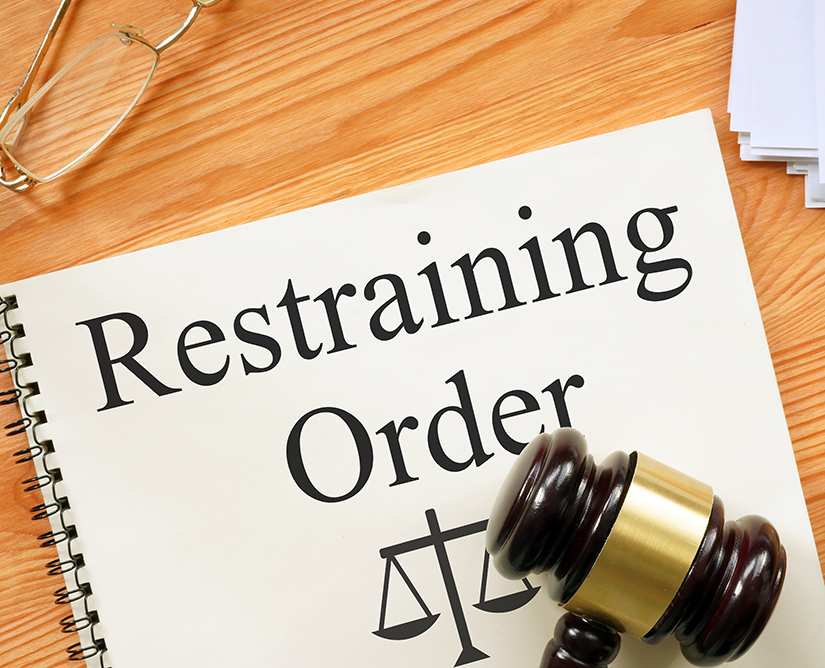Fremont Restraining Order Lawyer
156+
Reviews







If you find yourself served with a restraining order, or need to file one, you should act quickly to obtain a reliable defense attorney for help. A permanent restraining order could affect many areas of your life. Depending on the restraining order type that is filed, the court can make orders that address:
Whether you feel that a restraining order has been unfairly granted against you, you need help determining how to proceed following the issuance of a restraining order, or you need to file a restraining order against someone else who is harassing or abusing you, a knowledgeable Fremont restraining order lawyer could help evaluate your case to determine your potential legal remedies.
All restraining orders are not the same, so it is important for an individual served with a restraining order to understand what the order against them means. Restraining orders typically differ based on their levels of protection. For instance, an Emergency Protective Order (EPO) is a type of protective order issued by law enforcement that provides temporary protection if the officer believes there is an immediate and present danger of domestic violence. These emergency protective orders can last from 5 business days or 7 calendar days and it gives the protected party the opportunity to seek out a temporary restraining order (TRO) from the court.
Emergency Protective Orders are short in duration and are geared toward immediate protection of an individual. They are usually issued by law enforcement after responding to a domestic violence call for service. There is no need for a judge to review and grant the protection. The law enforcement officer has the authority to issue these protective orders when they reasonably believe that an individual may be harmed.
A party who seeks protection for a longer duration can file a request for protection with the court. The court will review the request and determine if there is a sufficient basis for temporary protection. If so, the court will grant what is known as a Temporary Restraining Order (TRO). This temporary order is meant to protect the Petitioner until the case can be heard by a judge at trial. Whether the initial petition for protection is temporarily granted or temporarily denied – a hearing date will be assigned within 21 days of the filing of the Petitioner. At that hearing date the Petitioner will have the opportunity to present their evidence and testimony supporting the needs for a restraining order and the Respondent will have the opportunity to defend against the request for the restraining order.
At the hearing the judge will decide whether the Petitioner has met their burden of proof for the judge to grant a Permanent Restraining Order. Depending on the type of restraining order filed the permanent duration of the order can last up to five years. The maximum duration of a restraining order in California is as follows:
In making the decision on a restraining order, the judge weighs the evidence and testimony presented, determines the credibility of the witnesses, and decides whether the burden of proof has been met by the Petitioner. An experienced Fremont restraining order lawyer could help fight against an unfair restraining order, defend against false allegations, mount a defense or present excusable justification for the conduct, help a person file the right type of order for their case, meet or defend against the burden of proof, and ensure that the client – whether it is the Petitioner or Respondent – is properly represented at trial.
When an individual is served with a restraining order, it means that the terms and conditions of the restraining order must be followed. If an individual fails to comply with the terms and conditions, the state could choose to charge the individual with a criminal offense for violating the restraining order. Typically, to convict a person for the crime of violating a restraining order, the prosecution must prove several elements, under California Penal Code § 273.6, including:
A violation of a restraining order can also be raised by way of a contempt action in restraining order court. Contempt actions are quasi-criminal matters because they do not result in a criminal conviction but can have serious criminal penalties, such as jail time and fines, associated with a finding that someone is in contempt. For every violation that occurs an individual can face up to five days in jail or 120 hours of community service plus a $1000 fine. This can all add up very quickly depending on the number of violations that occurred. It is critical to contact a restraining order lawyer who has experience with contempt proceedings if there is a violation of a restraining order.
There are defenses to violations of restraining orders. It is possible that a violation was truly accidental in some cases and the individual had no intent to commit a violation, the individual could have been unaware of the restraining order because they were never served, the allegations could be completely false, etc. A skilled restraining order lawyer in Fremont could help determine if there is a reasonable and effective defense to the allegations of contempt.
California law provides for several kinds of restraining orders that could be sought against an individual, as well as defended against. Each of these restraining orders presents different procedures, standards, and requirements that must be followed and met to have the restraining order granted. It is essential that you seek the assistance of a dedicated Fremont restraining order lawyer who understands the law and could help investigate your case to determine the potential courses of action. Schedule a case evaluation today to determine your legal options.

The Nieves Law Firm is dedicated to providing aggressive criminal defense representation to working professionals who have found themselves in trouble with the law. We show up to win, and we’re not afraid to fight aggressively to accomplish our client’s goals.
We understand that being accused of a crime can be a scary and confusing experience. That’s why we take the stress off our clients by handling the full scope of their legal situation from the initial consultation to the final outcome. Our bilingual attorneys and staff are here to ensure that our clients feel heard and understood every step of the way.
As one of the largest criminal defense teams in Oakland and the Greater Bay Area, we have the resources and experience to handle even the most complex cases. Our experienced team examines various aspects of your case and, perhaps most importantly, we genuinely care about our clients and their future. We take the time to learn about their goals and priorities so that we can achieve an outcome that allows them to move past their mistakes and focus on the future they want. When you work with us, you become part of our team.
Our skilled criminal defense attorneys have experience handling a wide range of criminal cases. With a deep understanding of the legal system and a track record of successful cases, our lawyers are committed to achieving the best possible outcome in your case.
When facing a criminal charge, having dedicated and experienced attorneys on your side is critical. At The Nieves Law Firm, we understand the gravity of your situation, and our criminal defense attorneys provide unwavering support and legal guidance.
From the moment you reach out to us, we prioritize your well-being and legal interests. Our criminal lawyers are with you every step of the way, from arrest to hearings and beyond, to ensure that your rights are protected. Whether you’re facing charges related to DUI, drug offenses, assault, sex crimes or any other allegation, we have the knowledge and courtroom experience to fight vigorously on your behalf.
We believe in the power of collaboration and will actively involve you in the decision-making process, ensuring you are well-informed and empowered to make the best choices for your defense. Our goal is not only to navigate the legal complexities but also to provide you with the peace of mind and reassurance you deserve during this challenging time.
Give us a call or contact us online so we can schedule a meeting to discuss your legal needs.
Schedule a meeting with our intake coordinator so we can determine the best plan to solve your legal problems.
We work to resolve your legal problems so you can focus on what is most important